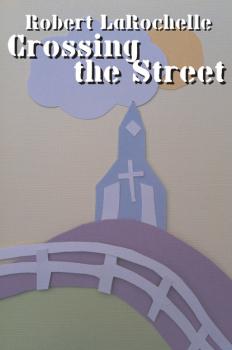ТОП просматриваемых книг сайта:
Robert R LaRochelle
Список книг автора Robert R LaRochelleАннотация
Pastor and author Bob LaRochelle believes that young people are much like adults in that we battle constantly with many questions. Some of these questions go well beyond “what” to ask some ultimate “why” questions. Whether we aim to or not, at some point we will encounter these questions. This book, suitable for youth classes at any time, approaches learning about the faith as an exploration of the questions. It is not an attempt to provide all the answers, but rather to explore and even suggest new questions for future exploration. If you have a youth group that is ready for and adventure exploring what’s at and beyond the edges of our understanding, while at the same time learning the basics of the Christian faith, this may be the book for you.
Аннотация
Dr Robert LaRochelle has a passion for reaching across the lines of division and guiding both sides to a place of dialogue, maybe even a place of agreement. Marriage is not an easy merger when the two parties are coming from diverse faith beliefs. Bob LaRochelle brings not only his passion to facilitate communication but also his own personal experience in navigating towards a united home. In his practical way, He does speak to some specific situations but he also discusses some general philosophies on how to communicate constructively.
Аннотация
The rift between Protestants and Roman Catholics continues to separate Christians from one another and to diminish our witness in the world. Words such as «heretic,» «apostate,» «idolater,» and «papist» have characterized much of the discussion over the last several centuries since the reformation. While changes in both groups over the last few decades have improved the tone of the discussion, much remains to be accomplished. Author Bob LaRochelle, as a former Roman Catholic and now a United Church of Christ minister, is well-equipped to guide us toward a more constructive relationship. Crossing the Street speaks to the heart of the Energion Publications mission statement by advocating a «mainstream ecumenical center» in which Roman Catholics and Protestants can come to a deeper appreciation and understanding of the gifts they bring to one another. It demonstrates ways in which these traditions have misunderstood one another and even themselves, and then proposes strategies for both ecumenical cooperation and self-understanding. This book is founded in a thorough understanding of both traditions and a commitment to ecumenical dialog and cooperation. It addresses both theory and practice. In a series of four chapters, it examines how we live in our own houses, the author's own story, and then the gifts that each group offers the other.



